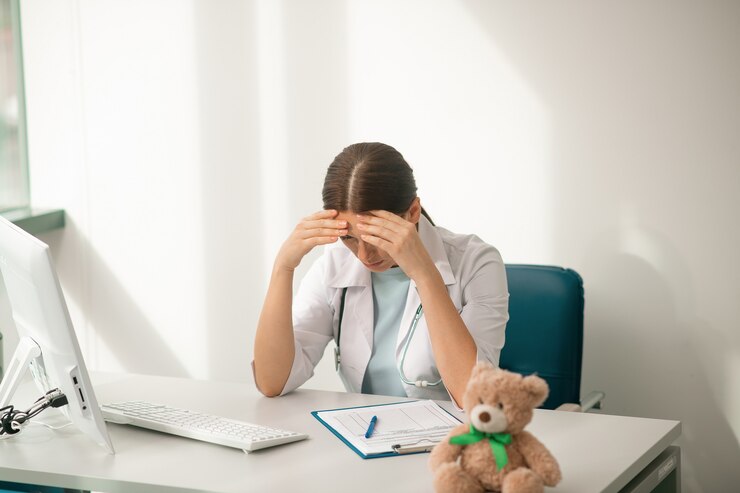Menopause changes more than just your period; it also causes significant hormonal imbalances that result in significant symptoms such as hot flashes and night sweats (see below). What’s more, these symptoms can occur at any time of day or night, not just at night like most people think. So if you’re finding yourself dealing with menopausal flushes and don’t know how to manage them, take comfort in knowing that you aren’t alone. This article will discuss the most common ways to deal with menopausal flushes and keep them from interfering with your life too much.
What Are The Causes of Hot Flashes?
Hot flashes and night sweats are triggered by a sudden drop in estrogen levels. During menopause, more than half of women experience hot flashes and for one in five, these symptoms occur daily for months or years at a time. The severity of these hot flashes and night sweats vary from person to person. They may be occasional and limited, or they can happen several times a day for years without any relief. Hot flashes tend to begin within five years of when your period stops, but some women start having them even earlier (perimenopause) during irregular periods, mood swings and vaginal dryness. But no matter what stage you’re at in perimenopause or menopause, there are ways to get relief from hot flashes
Tips on Managing Menopause Hot Flashes
Although hot flashes can strike at any time of day, they’re most common when you first wake up and after you’ve been active. One small way to manage them is by following a routine. Eat meals at about the same times each day, and go to bed and get up at about the same times, too. This helps your body get into a regular pattern, which makes hot flashes less likely. It also may help to keep windows closed during hot weather. The more variation in your environment, from temperature and light levels to noise levels, from one day or one week or month to another the more change there is the harder it is for your body’s thermostat (your hypothalamus) to adjust.
Lifestyle Changes To Avoid Getting Hot Flashes
While no one is sure exactly why hot flashes happen, there are ways you can manage them. Most doctors agree that eating a well-balanced diet, exercising regularly and managing stress will go a long way in reducing hot flashes. Keeping hydrated by drinking plenty of water can also help; experts recommend at least eight glasses of water a day. Getting enough sleep and maintaining normal weight are important as well. When your body fat percentage increases, your estrogen levels decrease; as estradiol levels drop, menopause symptoms such as hot flashes get worse.
Best Practices During Menopausal Flashes
If you are prone to hot flashes during menopause, these tips will help minimize their discomfort: Exercise: A brisk walk is a great way to work off sudden changes in body temperature that may precipitate a hot flash. Drink Water: Avoid liquids that are high in sugar and caffeine, which can exacerbate flushing symptoms. Breathe Deeply: Breathing exercises and relaxation techniques have been known to help some people manage flashes. They also benefit heart health. Try out several breathing techniques until you find one that feels comfortable for you. Temperature Change: Changing your environment may help reduce sweating. Consider leaving your office or home if possible as warm temperatures can lead avoid them altogether or at least make them less intense.
Help For Intense Hot Flashes
Flushing or hot flashes are a typical menopause symptom. A hot flush is like an intense wave of heat that can make you sweat and feel flushed and they’re certainly inconvenient when you’re out in public. Don’t shy away from doing things because of your menopausal flushes. Try taking an over-the-counter medication that can help alleviate symptoms, but keep in mind that these medications aren’t proven to lessen hot flashes or night sweats. Be sure to drink lots of water and stay active so you don’t dehydrate that’ll only exacerbate your symptoms! If a natural alternative appeals to you, try yoga, which has been shown in some research studies to reduce frequency and intensity of flushes.
Menopausal Gynaecologist Word of Advice
Unfortunately, you’re likely going to have more than a few hot flashes over your lifetime. There’s no getting around it. The good news is that they get easier to deal with and they lessen in frequency as time goes on. Hot flash isn’t exactly a technical term but it’s often used by Menopausal Gynaecologist in Coimbatore and patients when describing menopausal flushes for obvious reasons. Hot flashes are sudden feelings of heat or cold, which usually strike during menopause due to hormonal changes. They’re characterized by symptoms like perspiration and/or changes in skin temperature and blood flow (including blushing). These symptoms vary in intensity some can be mild while others can be quite uncomfortable, particularly during stressful situations, or if you have an anxiety disorder.
